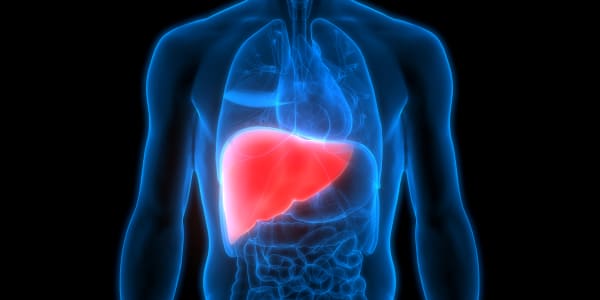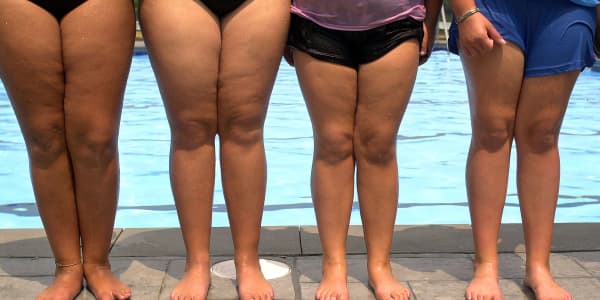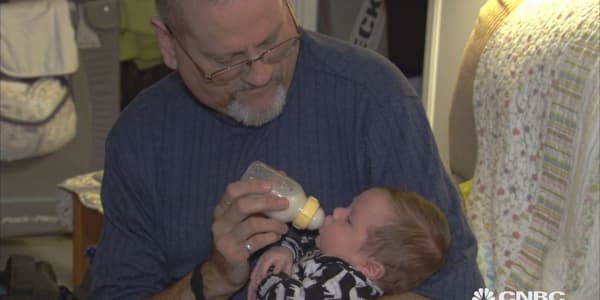If you're one of the 97 million dieters in the United States, you're likely familiar with the relentless battle to lose weight as well as its accompanying refrain: Eat less and exercise more. This ongoing struggle has fed the growth of diets from the doable to the dangerous, and exercise regimens from the reasonable to the ridiculous.
The growth of obesity in America is expanding as fast as our waistlines: According to the Centers for Disease Control and Prevention, more than one-third of American adults are obese. That means that roughly 36 percent of the population has a body mass index (BMI) over 30, putting them at risk for heart disease, stroke, type-2 diabetes and various cancers.
As if that isn't bad enough, an obese person spends roughly 42 percent more in medical costs than does a person of healthy weight, putting an enormous strain on America's already-bloated health-care system. And they are spending billions on commercial weight-loss plans as well: In 2017 diet plans such as Jenny Craig, Weight Watchers, Nutrisystem and others totaled $3.03 billion, according to Marketdata LLC, a market research firm that has been tracking the U.S. weight-loss market since 1989.
It's evident we're losing our battle with obesity: According to Marketdata's president, John LaRosa, "The number of active dieters is estimated to have fallen 10 percent since 2015, to 97 million, due to a growing-size acceptance movement and dieter fatigue. About 80 percent try to lose weight by themselves, but many fail, and the latest CDC statistics show that we are getting fatter, not thinner."
Many people don't know the specifics of what to eat and how to exercise. We don't automatically learn these things in school, nor from our parents or others in our lives.Scott KahanM.D., director of the National Center for Weight and Wellness in Washington, D.C.
The struggle is real. "Many people don't know the specifics of what to eat and how to exercise," said Scott Kahan, M.D., director of the National Center for Weight and Wellness in Washington, D.C. "We don't automatically learn these things in school, nor from our parents or others in our lives." And the people we look to for guidance are not always well informed, either: Most medical schools don't provide budding doctors with education on practical nutrition, physical activity or weight management, he said.
But here's the rub: Knowing what to do by itself is just not enough. "To lose weight and keep it off, having practical approaches for changing our behavior is central," said Kahan.
So what's the best solution for those struggling to get their weight under control? Embark on a commercial weight-loss program? Take an anti-obesity medication? Enroll at a medical weight-loss clinic? Limit yourself to a meal-replacement shake or nutrition bar? All the noise out there makes it very challenging to know who or what to listen to and what approach to take, noted Kahan.
Shedding pounds with an app
One possible solution to reduce that noise might already be in the palm of your hand. LoseIt!, MyFitnessPal, SparkPeople, Noom and Fitbit are just a few of the more than 20,000 weight-loss apps on the market available for download that give dieters the ability to be active participants in their struggle to lose weight. Such apps that take a lifestyle-intervention approach allow users to log and track their progress and to access helpful educational resources to support their weight-loss goals.
Scientific evidence supports the finding that mobile apps can be effective in the fight against obesity. A 2016 study published in the Journal of Medical Internet Research that reviewed close to 400 apps found that compared to standard approaches to weight loss, app users could more effectively improve their weight, diet and physical activity.
Artem Petakov, co-founder and president of Noom, which has 45 million active users, described the app as a "behavior-change platform." Its users can keep a food diary, log their exercise, learn to deal with eating triggers and get social support and one-on-one individual and group coaching. There's even a virtual coach who can keep an eye on and provide feedback and teach users valuable lessons, such as how to recover from falling off track — a common pitfall for dieters everywhere.
Various scientific studies have demonstrated Noom's success as a useful tool for losing weight and keeping it off. Noom also offers a separate Diabetes Prevention Program. In a study published in BMJ Open Diabetes Research and Care, Noom's program helped 64 percent of its participants lose more than 5 percent of their weight. These results were comparable to the CDC's findings from the traditional diabetes prevention program, which helps prevent or delay the onset of type-2 diabetes.
Another app, called Nudge, syncs up with the data from other leading apps, like Moves, Runkeeper and Apple Health, to help you stay on top of your weight-loss goals. It even gives you recommendations for what you need to do more of, and you can join social clubs, where you can link up with other Nudge users for advice and support. If you need more of a push, it will also connect you with a personal coach.
"Having a weight-loss app on your phone is like having a string around your finger reminding you to act," said lifestyle expert Jeff Halevy, former Today Show fitness correspondent and founder of HLVY Group, which includes a portfolio of companies spanning health club operation, technology, media and content creation and more.
"We live in the information age, but information is not always enough. Apps are something bigger than ourselves, allowing for a sense of community, recognition, accomplishment and sharing," he said.
— By Sheryl Kraft, special to CNBC.com
More from Modern Medicine:
A simple, painless test could make the dreaded colonoscopy obsolete
New Alzheimer's blood test can detect disease decades before symptoms
The most common knee surgery for seniors is costly, and usually a waste




